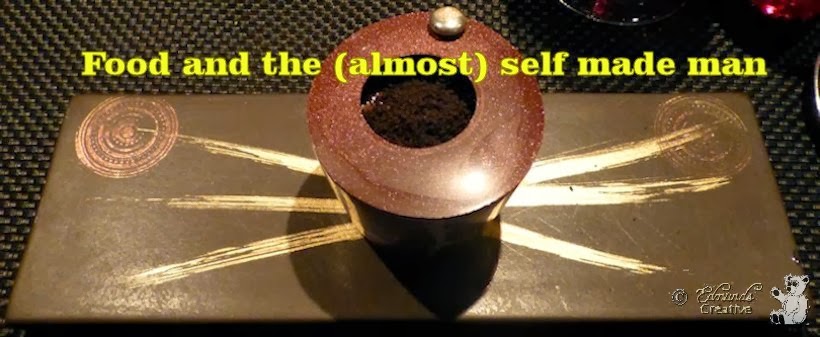The Welsh in my audience will know of cawl. Where I grew up, in West Wales, pubs would invite a night of culture with a 'Cawl a Chan' evening. The Landlady ( it was rare for men to be the cook back then) would prepare a cauldron of stew made with mostly root vegetables and cheap cuts of lamb. This was boiled for a few hours at least a day before the big night then served 'ail dwymo' (second heated) on the night. Enjoyed with a warmish pint of real ale, a good crusty hunk of bread and a lump of strong cheddar cheese, normally crumbled over the bowl of cawl. Mixed with a pianist and piano in the better establishments and a few key singers from the locale we would join in and sing for our suppers (and pay a few pence too). Now we get plastic 'German/Polish/Czech/Martian' lager, a poor dough smothered in cheap tomato sauce with so called 'Italian' meats sprinkled on top along with a few bits of onion and a cheese that has more in common with out car tires than a cow, a football match between two European towns we have never been to and/or a blast of the 'latest' pop music. Nostalgia is a wonderful thing but Hiraeth can only be understood from behind a bowl of cawl in front of a fire in your local back home.
Enough of the romance. This is a simple and delicious supper that can be prepared the day before and served after a hard day watching rugby etc. There are more recipes for cawl than there are Jones or Thomas in Wales but this is a simple 'poor man's food'. In my house I take about a pound of neck fillet of lamb cut roughly into inch chunks. These are fried in the bottom of a good and large saucepan (4-5 litres). Once browned, add three or four leeks cut into 1/2 inch slices. Add at least five thick carrots cut in thick (at least 1/4 inch thick). Use the same rough cut idea for two or three parsnips and 1/2 a swede. If you are feeling plush you can add celery, onion and cabbage. In short, if the veg are around then add them to fill the space. Add enough water and stock cubes to cover the vegetables and meat and bring to the boil then simmer for at least 90 minutes then remove from the heat. Traditionally a ham would be cooked and the water used to add to the cawl as a stock. Try it some time, decadent for a poor Welsh family but fantastic.
The real magic of Cawl comes the day after. I make enough for a few meals and have a damned good fridge to keep it fresh. Tomorrow I will take enough out to feed the two of us. Bring it back to the boil. Add a few potatoes. I like a few small new potatoes cut in two and cooked off in the liquor. This helps to slightly thicken it and adds a 'something special' to the taste. Spoon into the bowls and serve with a good crusty roll and a strong cheddar cheese. Just before you eat (and during) crumble the cheddar into the cawl. Heaven in a bowl.
If you try the recipe and you get it just right then try singing this little hymn (written round the corner from where I grew up). If you have it spot on then the tune will come naturally and you will find yourself joined by a heavenly choir. If this does not happen then head off to Wales and travel around a while (here is a great place to find accommodation with good food http://www.rarebits.co.uk/home ) and you will get the hang of it.
Nid wy'n gofyn bywyd moethus,
Aur y byd na'i berlau mân:
Gofyn wyf am galon hapus,
Calon onest, calon lân.
Calon lân yn llawn daioni,
Tecach yw na'r lili dlos:
Dim ond calon lân all ganu
Canu'r dydd a chanu'r nos.
Pe dymunwn olud bydol,
Hedyn buan ganddo sydd;
Golud calon lân, rinweddol,
Yn dwyn bythol elw fydd.
(Chorus)
Hwyr a bore fy nymuniad
Gwyd i'r nef ar adain cân
Ar i Dduw, er mwyn fy Ngheidwad,
Roddi i mi galon lân.
(Chorus)
Alternative words:
Verse 1, line 3: Gofyn wyf am fywyd hapus
Verse 2, line 2: Chwim adenydd iddo sydd
Verse 3, line 2: Esgyn ar adenydd cân
Chorus, line 3: Does ond calon lân all ganu

No comments:
Post a Comment